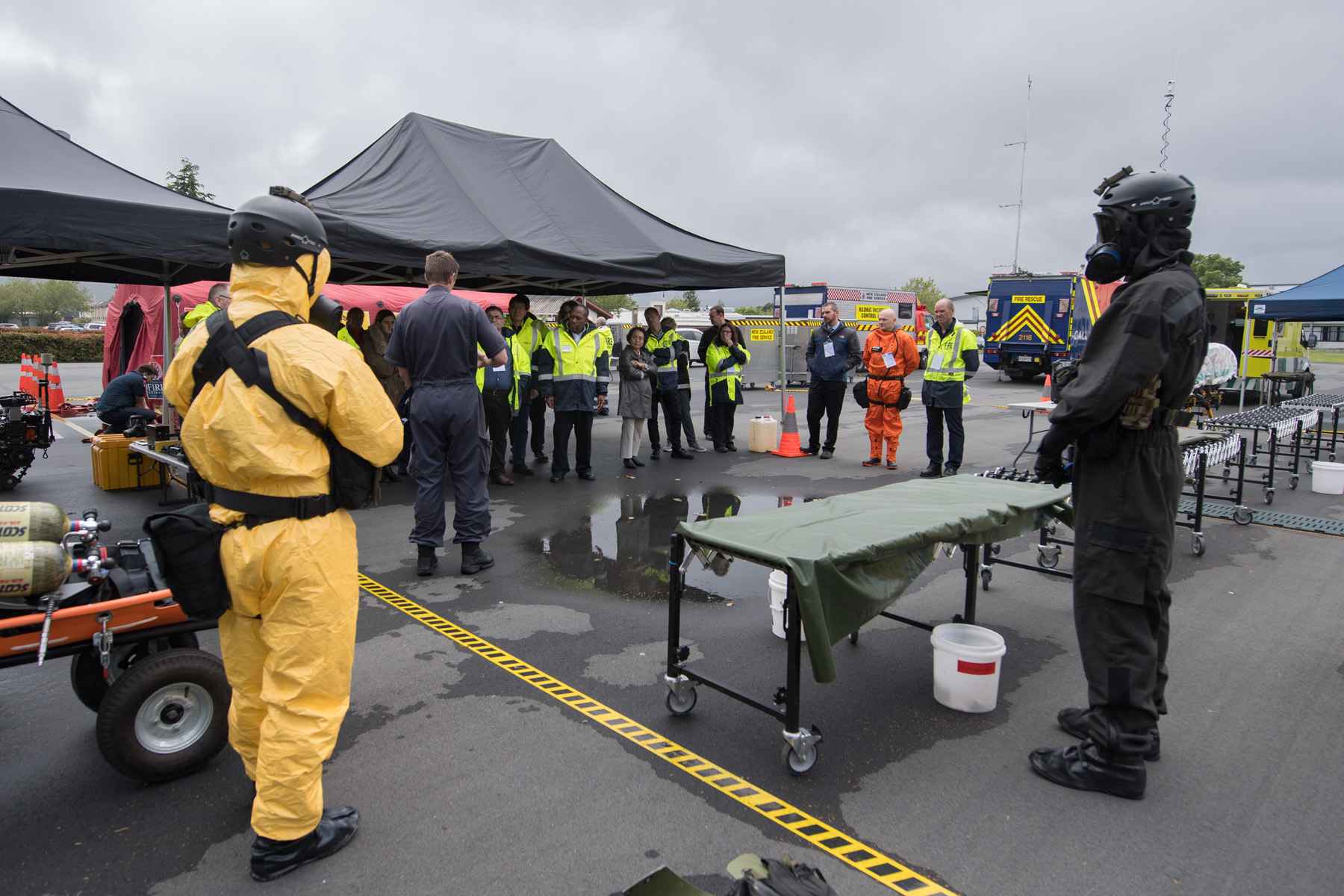On 26–30 November, international health experts joined their New Zealand counterparts in Wellington and Christchurch to conduct a Joint External Evaluation (JEE), a learning exercise to review and strengthen a country’s preparedness for outbreaks and emergencies.
The World Health Organization (WHO) in consultation with Member States and partners developed the JEE to evaluate countries’ ability to prevent, detect and respond to health emergencies. The process focuses on a set of core capacities required under the International Health Regulations, or IHR (2005)—a legally binding instrument signed by 196 countries. The JEE in New Zealand was the 11th conducted in the WHO Western Pacific Region.
In a JEE, national and international experts look at current approaches and jointly develop ideas for further improvement. At the end, countries receive recommendations on how to strengthen systems to save lives and protect health in outbreaks and emergencies.
The international mission in November followed more than 12 months of preparation by New Zealand. Since October 2017, national experts had been delving into technical discussions involving 23 government agencies.
While the official report on the JEE will be issued in early 2019, international experts commended New Zealand on the strength of their existing preparedness efforts and ability to respond to health emergencies, noting in particular their culture of continuous learning and collaboration between different government agencies and operational partners. They also recognized the country’s commitment to supporting their Pacific island neighbours to build sustainable health security capacities.
You have built a strong foundation of preparedness here in New Zealand, and that’s something you should be proud of. However, we all have more work to do—especially ahead of the next pandemic.
- Dr Li Ailan
WHO Regional Emergency Director
WHO’s Regional Emergency Director, Dr Li Ailan, encouraged the country to continue strengthening health emergency preparedness: “You have built a strong foundation of preparedness here in New Zealand, and that’s something you should be proud of. However, we all have more work to do – especially ahead of the next pandemic. I hope that the recommendations you receive as part of the JEE will provide renewed momentum for continued investment in health security.”
JEEs are a key component of the Asia Pacific Strategy for Emerging Diseases and Public Health Emergencies (APSED III), which serves as a common framework for action for countries in the Region to improve their health emergency preparedness and meet their obligations under IHR (2005).

Credit: New Zealand Defence Force
JEE team members are briefed on multi-agency response capacity for chemical and radiological emergencies.




